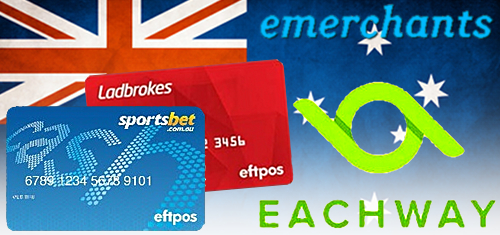 Australian sports bettors’ use of online bookmakers’ reloadable debit cards has risen sixfold in just one year, leading anti-gambling campaigners to warn that the cards make it too easy to wager.
Australian sports bettors’ use of online bookmakers’ reloadable debit cards has risen sixfold in just one year, leading anti-gambling campaigners to warn that the cards make it too easy to wager.
Queensland-based payment processor eMerchants says $90m was loaded onto bookmaker-branded debit cards in the first half of the last financial year, up from $15m in the same period a year earlier.
The surge reflects the number of deals the ASX-listed eMerchants has struck with Aussie-licensed online bookies over the same span. Ladbrokes Australia got the ball rolling in 2014 and eMerchants has gone on to ink deals with Lads’ competitors CrownBet, Bet365 and Sportsbet.
Originally designed for withdrawal purposes, the cards allowed punters easy access to their winnings via cash machines and EFTPOS terminals. eMerchants has since launched its EachWay system, which allows punters to deposit cash to their online betting accounts and have the funds instantly available for wagering purposes.
eMerchants CFO Bruce Stewart told Fairfax Media that 40% of the sums loaded onto the cards via withdrawals ends up flowing back to the bookies as new wagers, which goes a long way towards explaining their popularity with bookies. William Hill Australia joined the card party in December by inking its own EachWay deal with eMerchants, and the parties expect to launch the system in the first half of 2016.
Hills may be a latecomer in Australia, but the company’s US division has led the way in Nevada by striking a deal with convenience store chain 7-Eleven to allow punters greater facility in funding their online and mobile sports betting accounts. eMerchants is currently negotiating a down-under deal with both 7-Eleven and Woolworths to allow punters to access the EachWay system at self-serve checkouts.
eMerchants is also negotiating a deal for a card associated with payday loan firm Cash Converters, which has anti-gambling types raising the spectre of gamblers taking out high-interest loans to fund their betting addictions. eMerchants’ Stewart rejected this out of hand, saying it “wouldn’t be appropriate” to offer a card linked to both gambling and credit services.
